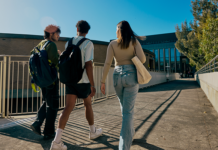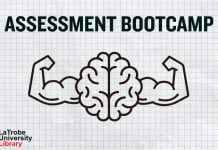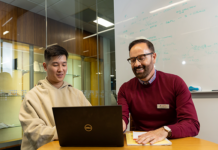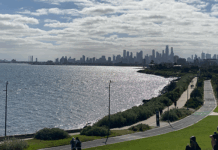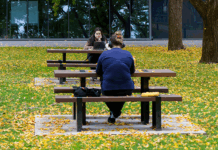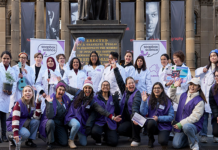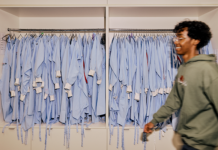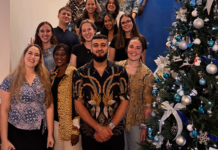Start a conversation with a fellow student, friend or loved one – Are you Safe at Home?
Content Note: The following article contains sensitive content, including themes of family violence. This may be distressing for some people. Please seek support as needed.
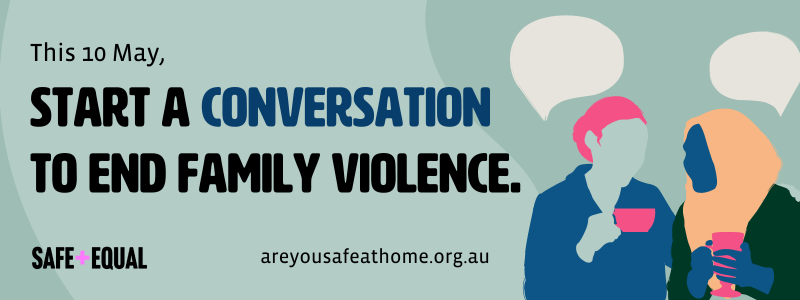
What is Are You Safe at Home? Day
Are You Safe at Home Day is an Australian awareness day created by Safe and Equal that takes place annually on 10 May. Now in its third year, the day is dedicated to raising awareness about family violence.
Why do we need Are You Safe at Home? Day
It provides an opportunity for the La Trobe community to increase their understanding of family violence and learn about the resources and supports available (National Plan to End Violence Against Women and Children, page 10-13) for those who may be experiencing family violence.
The National Community Attitudes towards Violence against Women Survey (NCAS) found violence in Australia is gendered, with 1 in 4 women and 1 in 14 men having experienced intimate partner violence since the age of 15, (ABS, 2023). Social inequality and discrimination also produce different forms and patterns of violence for people depending on their personal attributes or circumstances. For example, LGBTIQA+ people are more likely to experience sexual violence and family violence, (ANROWS, 2023).
Are You Safe at Home? Day is a reminder that family violence can happen to anyone, regardless of age, gender, race or socioeconomic status. We encourage everyone to act against family violence and support those who might be experiencing it. By increasing your understanding of the signs of family violence and asking, “Are you Safe at Home?” you could make a difference in someone’s life.
In addition to supporting those affected by domestic violence, it is also important that as a society, community, and as individuals, we work to address the evidence-based drivers of family violence. The ‘Change the Story’ framework outlines eight essential violence prevention actions including challenging gender stereotypes and fostering positive, equal, and respectful relationships.
How can I get involved?
Learn how to ask, “Are You Safe at Home?”
We know that many people experiencing family violence will reach out to family and friends first. How you respond can make a real difference on someone’s journey to safety. Watch this video and learn how to ask, ‘Are you Safe at Home?’. If you want to discuss how to ask someone, please get in touch with out Wellbeing Mentors in our Health, Wellbeing and Inclusion team.
Attend the “Are You Safe at Home?” Day webinar
Join in on 9 May, for a conversation exploring the crucial role that colleagues and workplaces play in recognising and responding to family violence, with keynote speech by renowned journalist, author and educator Jess Hill. Hosted by Maroondah City Council in Partnership with City of Monash and Knox City Council.
Thursday 9 May, 7.30pm – 8.30pm (AEST)
Support the La Trobe Sexual Harm Prevention and Response Action Plan
Many people don’t realise that sexual harm can occur within relationships or that the same social drivers that drive family violence, also drive sexual harm. La Trobe has a University-wide Sexual Harm Prevention and Response Action Plan. The plan takes forward La Trobe’s commitment to the prevention of sexual harm and ensures appropriate responses to disclosures and reports.
Attend training at La Trobe
Respectful Communities run the following training throughout the year:
- LGBTIQA+ Ally Training
- Respectful Relationships and Bystander intervention
- EAAA Flip the Script training
Check out our training website for more information.
Where to get support
- Safer Community at La Trobe – a free, confidential support service if you experience or witness concerning, threatening, inappropriate or uncomfortable behaviour.
- Health, Wellbeing and Inclusion at La Trobe – free support services for your health and wellbeing if you’re a current La Trobe student.
- NCASA is a sexual assault service located in Heidelberg. An NCASA counsellor also visits the Melbourne (Bundoora) Campus weekly and can be accessed through Health Wellbeing and Inclusion.
- CASACV for students in Bendigo, CASASV provide trauma-informed counselling, advocacy and support for students who have experienced sexual assault, either recently or in the past.
- Orange Door is a ‘one-stop-shop’ service for family violence information, referral and short-term support. Please refer to their website to check if an Orange Door centre is in your area. The closest Orange Door to La Trobe’s Bundoora campus is located in Heidelberg (Phone 1800 319 355).
- 1800RESPECT is the national family violence/sexual assault counselling service available 24 hours a day, 7 days a week for free confidential advice and referrals, as well as online support. Interpreters are also available if needed.
- Djirra is a specialist family violence organisation that delivers culturally informed family violence legal and support services, predominantly for Aboriginal and Torres Strait Islander women.
- Rainbow Door support is available to LGBTIQA+ people of all ages and identities with issues that may include family and intimate partner violence (including elder abuse), alcohol and other drugs, suicidal thoughts, relationship issues, sexual assault, social isolation, mental health, and wellbeing.
- Mens Line provides support for men who are experiencing violent or abusive relationships.
- Men’s Referral Service provides family violence telephone counselling, information and referral for men wanting to take responsibility for their violent behaviour. The service also provides support and referrals for male victims of family violence, women and men seeking information on behalf of their male partners, and friends or family members.
References
ABS, 2023, Personal Safety Australia
ANROWS, 2023, Attitudes Matter: Summary NCAS Report
